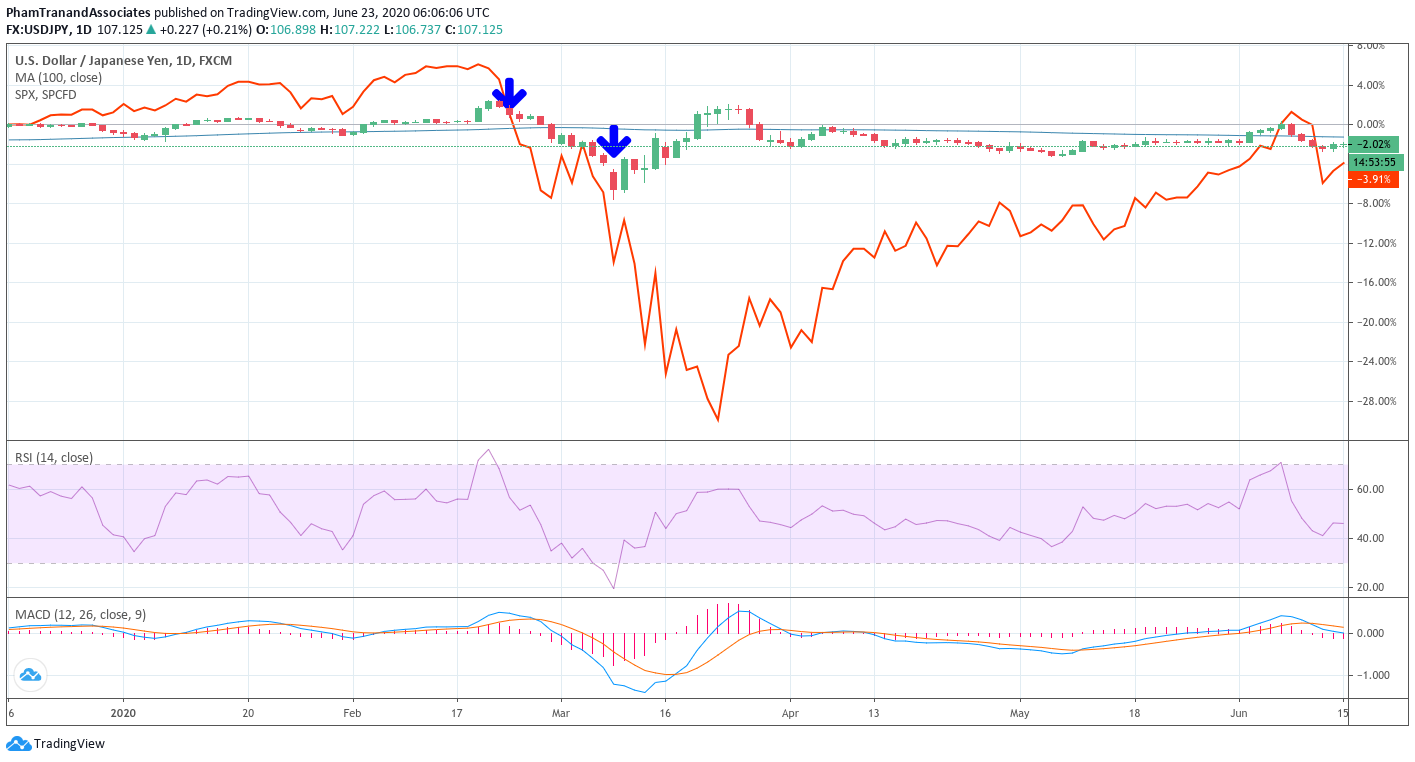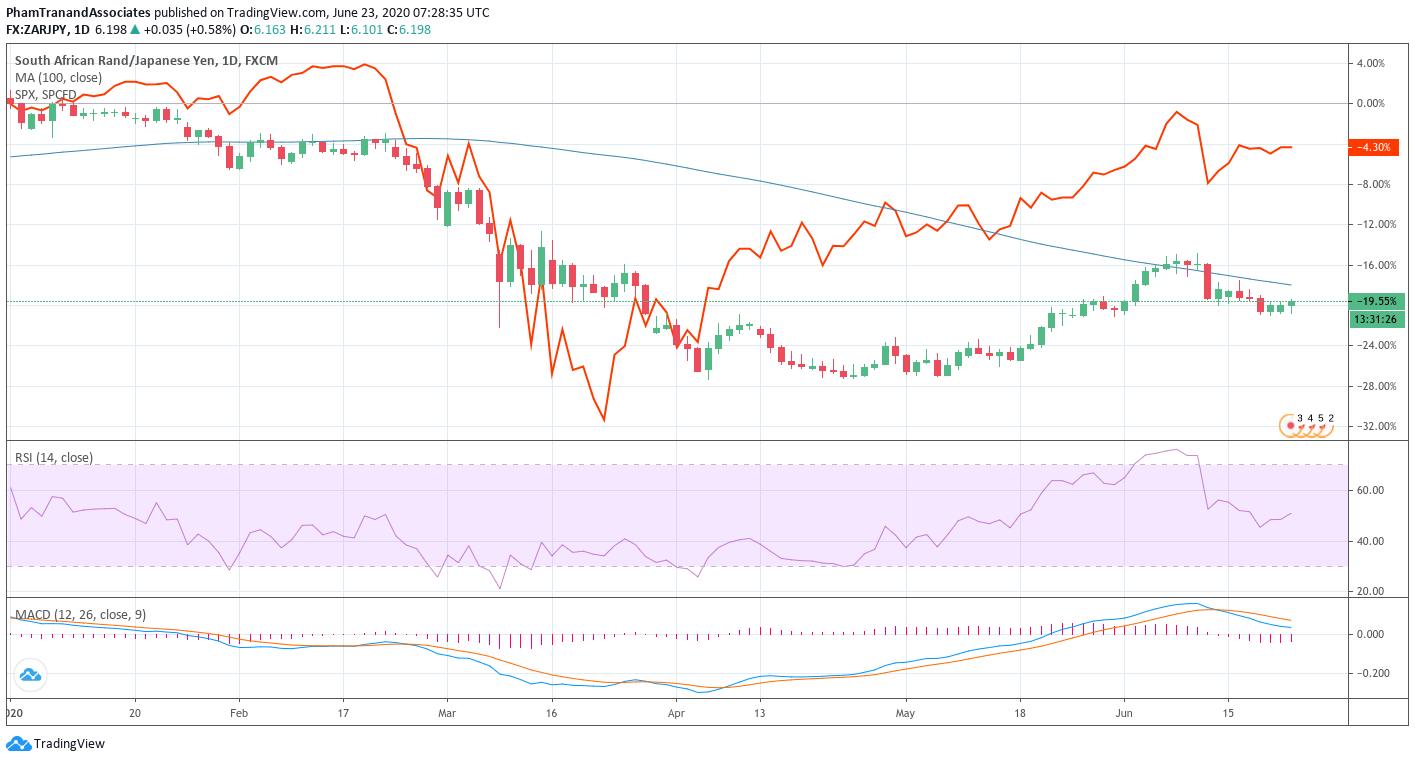USDJPY confused, emerging market currencies provide clarity

One useful and common way to look at the Forex markets is through a “risk-on” versus “risk-off” lens. This generally pertains to market optimism regarding future global growth and economic activity. When the market broadly believes that global economic growth is set to decrease in the future the market is said to be in a “risk-off” mood, resulting in appreciation of certain securities known as “safe-haven” assets. Having knowledge of these assets can help Forex traders to profit from lucrative safe-haven trades..
US dollar currently safe-haven
In Forex, the currencies which have traditionally been considered safe-haven assets are the Japanese yen and the Swiss franc. However, there are times when other currencies start behaving like safe-haven assets, due to traders perceiving the economic and geopolitical situation of the issuing countries to be stable in comparison to the rest of the other countries issuing currencies traded on the Forex market. At the moment, the US dollar has been behaving like a safe-haven currency.
On the other hand, regardless of the safe-haven status of any currency, there is always the potential to capitalize on fluctuations in the Forex markets. Just make sure you choose a reputable Forex broker with a stable trading platform for accessing the currency markets.
USDJPY and stock market correlation
Throughout the global pandemic crisis, traders have flocked to USD largely due to the perception that the U.S. economy was one of the strongest which would allow it to better recover from the economic damage caused by Covid-19. However, this has made trading the USDJPY somewhat complicated since the Japanese Yen is also considered a safe-haven currency. This can be seen when comparing the USDJPY to S&P 500 which is generally considered a risk-on asset, meaning in risk-off markets the S&P 500 will decline.
Correlation broken temporarily
Stocks took a dive in mid-February with risk-off sentiment. The USDJPY also sharply declined at the same time, reflecting the same risk averse environment, bringing strength to the yen. However, in early March, when many larger states in the U.S. started shutting down, the S&P 500 continued declining on risk aversion. Meanwhile, USDJPY reversed with traders piling into the USD safe-haven trade, causing the correlation between S&P 500 and USDJPY to be temporarily broken.
USDJPY trading in narrow range, potential profit to come
The USDJPY is now trading with hardly any movement despite the rapid rise of the S&P 500, propelled by optimism related to the re-opening of the U.S. economy and other economies around the globe. This can present significant profit potential for Forex traders when USDJPY eventually does choose a direction to move. If traders continue to see the U.S. economy more insulated from the pandemic’s effects, then in times of risk-off you may see USDJPY appreciate on dollar strength. However, if the market starts to believe that the damage to the U.S. economy is more permanent, the yen may become more of a safe-haven trade with the USDJPY declining. Paying close attention to the latest developments in coronavirus spread as well as market sentiment regarding the U.S. economy can help Forex traders decide on a direction for trading USDJPY. This can result in serious profits for currency traders who are on the right side of the trade when risk-off sentiment hits the market again.
Emerging market currencies provide clearer path
Another option is to choose a currency pair with one emerging market currency and one traditional safe-haven currency. This will help to avoid some of the ambiguity when both currencies in the Forex pair are commonly used as safe-haven trades. Emerging markets are sensitive to market sentiment on future global growth, strengthening in correlation with risk-on sentiment. For example, the South African rand when traded against JPY, has been closely correlated with the S&P 500, but without the recent confusing divergence seen in USDJPY.
Faster moving markets mean more profit potential
Although trading emerging market currencies against the yen, like with ZARJPY, can be riskier due to the faster moving market, it can also translate into more potential for large profits for Forex traders. Therefore, despite the recent volatility, this is the perfect time to be in the markets. In fact, a certain amount of volatility is required for traders to make money trading currencies. As long as your broker has basic risk management tools such as stop-loss, you will be able to mitigate the risks associated with volatile markets.


